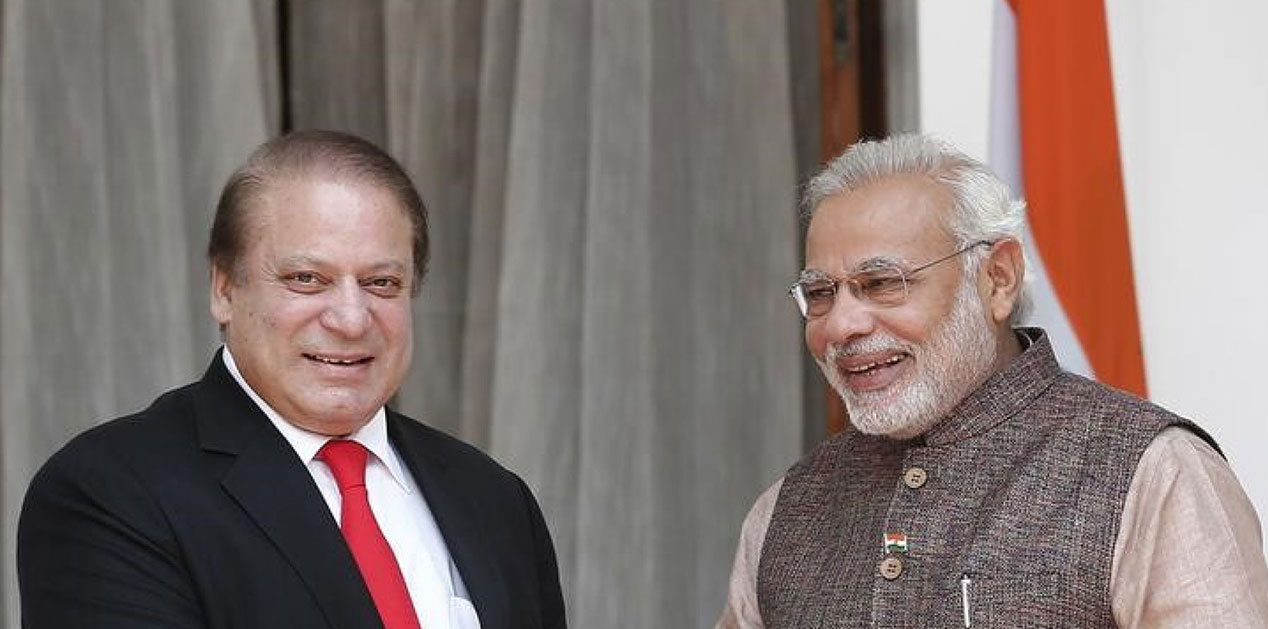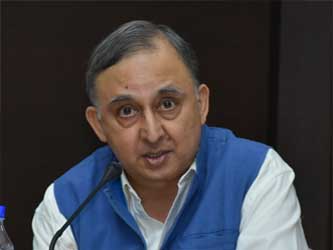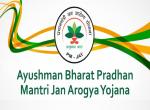With the PM Modi-led government completing two years in office on May 25, 2016, this is a good time to examine how successful its Pakistan policy has been, the challenges it faces in dealing with Pakistan and the prospects of the bilateral relationship.
The stark reality of Indo-Pak relations is that they have been on a roller coaster for decades. The last two years have been no exception as the highs inter-mixed with the lows to produce a plateaued relationship, stuck in a time and space warp. In fact, it is a truism that a potential thaw in the relationship has invariably been stymied by terrorist incidents, every initiative biting the proverbial dust.
During the last two years, there were two out of the box initiatives, both taken by PM Modi- the invitation to SAARC leaders, including PM Nawaz Sharif (PMNS), to attend his inauguration in May 2014 and his impromptu visit to Lahore/Raiwand on his way back from Kabul on December 25, 2015 to wish PMNS on his birthday. In addition, the two PMs met on July 10, 2015 on the sidelines of the SCO Summit in Ufa where an agreement was reached for a meeting between the two National Security Advisers (NSAs) to discuss all terrorism-related issues and the brief meeting between the two PMs in Paris in November 2015 on the margins of the CoP21 Conference. Both these meeting kick-started an otherwise stalled dialogue process. Follow up meetings were held between the NSAs in Bangkok on December 06, 2015 and between the EAM Mrs Sushma Swaraj and Adviser to PMNS, Sartaj Aziz in Islamabad on December 08-09, 2015 where a Comprehensive Bilateral Dialogue (CBD) format was announced.
As against these highs, the lows were the calling off the scheduled Foreign Secretary (FS) level talks in August 25, 2014 and postponement of the FS talks scheduled in January 2016; calling of the NSA-level talks in July 2015; massive ceasefire violations in the second half of 2014 and again in July-August 2015 and terrorist attacks by Pak-based groups at Gurdaspur and Pathankot in July 2015 and January 2016 respectively.
On the face of it, therefore, what the Pakistan policy seems to have achieved is putting in place a CBD structure that has yet to be operationalized and a NSA structure that has been operationalized but still has a lot of ground to visibly cover in terms of impacting on terrorism.
Thus, it has been stressed by instant analysts who see the complex Indo-Pak relationship as a prime-time T-20 match, that at the end of two years, the government has very little to show by way of ‘results’. They hold that even the hopes generated by the out-of-the-box initiatives taken by PM Modi seem to have dissipated. Others, more cynical, talk about having been there before and point to the dead hand of sterile negotiations frittering away any hopes of peace and a normal relationship.
Historically, normalisation of relations with Pakistan has been a rocky road. When former PM Rajiv Gandhi met the newly elected Benazir Bhutto in 1988, there were innuendos in the Urdu press “Benazir aur Rajiv mein muskurahaton kay tabadlay hoyay” (Benazir and Rajiv exchanged smiles). Benazir was portrayed as a ‘national security risk’ and a ‘traitor’ who allegedly passed on lists of Sikh activists to Rajiv Gandhi. In February 1999, PM Vajpayee’s visited Lahore and was presented with Kargil and later with the attack on the Indian Parliament. PM Manmohan Singh was faced with the attacks in Mumbai(26/11).
This being the reality and nature of Indo-Pak relations, instead of analyzing the government’s policy in terms of ‘results’ it would be far more pertinent to consider the government’s Pak policy in a longer time frame and ask what is the government trying to achieve and what are the challenges it faces?
The Government’s vision of the relationship was outlined by the PM while addressing the Combined Commanders’ Conference on board INS Vikramaditya on December 15, 2015. He made the following points: (1) India was resuming talks with Islamabad to “try and turn the course of history” and bring an end to terrorism, without dropping our security guard. (2) Pakistan’s intentions would be tested and it would be judged by its commitment on terrorism; (3) The objective was to build peaceful relations, advance cooperation and promote stability and prosperity in our region, (4) There were many challenges and barriers on the path but the effort was worth it because the peace dividends were huge and the future of our children was at stake.
As compared with the past, some interesting features of the relationship are that both the PMs are seen as leaders with parliamentary majorities to back their policies; both are keen to be seen as making a difference in bilateral ties and both see economic potential in the relationship.
Perhaps that’s why an initial difference was noticed in the wake of the Pathankot terrorist attack- the government accused ‘non-state actors’ but did not accuse Pakistan directly and Pakistan reciprocated by promising to investigate and later filed an FIR, acknowledging that the attackers were indeed Pakistani. Subsequently, however, the indications are that the Pathankot investigations could go the Mumbai way i.e. nowhere, largely due to Pakistan’s domestic compulsions.
The greatest challenge for the Modi government as it calibrates its Pakistan policy, as noted by the PM himself, is to cap terrorism emanating from Pakistan and to ensure that it is at the top of the bilateral agenda. This will be a difficult task since Pakistan has pursued terrorism as an instrument of state policy for decades. It would be unrealistic to expect that it will shut the terrorist tap overnight, even if it were willing and able to do so. At present there are hardly any indications that it is willing to do so. Equally, its inability to do so is reflected by its lack of sincerity in investigating and prosecuting the Mumbai and now Pathankot terror attacks.
Pakistan frequently claims that it is a victim of terrorism and not a sponsor. It indeed is a victim precisely because it has created, nurtured and allowed anti-India terrorist organisations to flourish. Musharraf, for example, recently admitted that the ISI was training the Lashkar-e-Toiba (LeT) and the Jaish-e-Mohammad (JeM). The longer Pakistan persists with these terrorist organisations to pursue an anti-Indian agenda, the greater will be the influence that these organizations exercise within Pakistan.
By now, even the Pak media has started questioning such a policy. For example, The Daily Times held, “A trust deficit exists between Pakistan and India due to duality of policies of Pakistan in the past, which still causes suspicion despite a belated crackdown against militants, stated now to be irrespective of ‘good’ or ‘bad’ militants and Taliban.” [Peace for prosperity : edit in Daily Times, April 07, 2016] Or as the Dawn put it, “Most of Pakistan’s terrorism problems have roots in our past policy of promoting militant groups like JeM to fight proxy wars. It is now time to undo that historical wrong. One hopes the tipping point has finally arrived.” [Zahid Hussain, The Demon We Created, January 20, 2016]
Even the National Assembly Standing Committee on Foreign Affairs in February 2016 in its policy paper stated, “Pakistan should not encourage calls for active support of armed, banned, militant groups in Kashmir.”
There is thus a build up of public opinion against harboring India-specific terrorists but only time will tell if the Pak Army would pay heed to such opinion. In the past, public opinion has rarely mattered in the Army’s decision-making.
The second challenge for the Modi government is Pakistan’s insistence that a ‘resolution’ of the Kashmir issue has to be the centerpiece of any bilateral talks. India has not been reluctant to discuss Kashmir in the appropriate forum. However, for Pakistan to hold bilateral relations hostage to an issue that has bedeviled relations for seven decades and is unlikely to be ‘resolved’ overnight, even if there was clarity about what a ‘resolution’ implied, is a sure recipe for stalling any forward movement.
Pakistan has tried for long to build the narrative that Kashmiri ‘freedom fighters’ cannot be equated with ‘terrorists’, an argument that has few takers in the world. If anything there is zero tolerance today in the world for any kind of violence or armed uprising.
For the future, with Nawaz Sharif personally getting bogged down with the Panama Leaks and the Army monitoring the situation closely; it may be difficult for him to sustain new initiatives in his India policy.
The Pak Army is wary of any India initiatives in which it is not included. They would resist tooth and nail any attempt at normalization of relations with India that reduces their importance in Pakistan. Given their hold on the media, the Army has been able to devise a badge of patriotism that has ‘anti-India’ boldly emblazoned on it. A popular slogan crafted is “Jo Hindustan ka yaar hai, Gaddar hai Gaddar hai” [A friend of India is a traitor]. Of late, the Army has been keen to establish ‘terrorism equivalence’ between Pakistan and India by looking under every rock for alleged R&AW spies and to tweak the bilateral dialogue accordingly.
With the Army dictating the India policy, the appointment of Lt Gen Janjua (retired) as NSA has the potential of enabling India to understand the Army mind-set and views. This, however, is totally dependent on the NSA having the ear and the confidence of the Army Chief. Without this, Lt Gen Janjua may just as well be a civilian.
Overall, therefore, given the history of Indo-Pak relations, it would be premature to judge the Modi Government’s Pakistan policy by the ‘results’ it has achieved in just two years. The bilateral problems are complex and historical and laced with decades of hatred, suspicion and animosity. It will take painstaking diplomacy on the one hand and slow, measured steps, on the other, to move forward. The key factor would have to be Pakistan coming to grips with its own existential threat. It is only when the Pak establishment internalizes that it is Pakistan that is most imperiled by the terrorists it has nurtured for decades and not India that the first steps would have been taken to normalise relations. It is then that the out of the box initiatives of the government would bear fruit.
The author retired as Special Secretary in the Cabinet Secretariat, Government of India.
Published Date: 30th May 2016, Image Source: http://tribune.com.pk
(Disclaimer: The views and opinions expressed in this article are those of the author and do not necessarily reflect the official policy or position of the Vivekananda International Foundation)











Post new comment